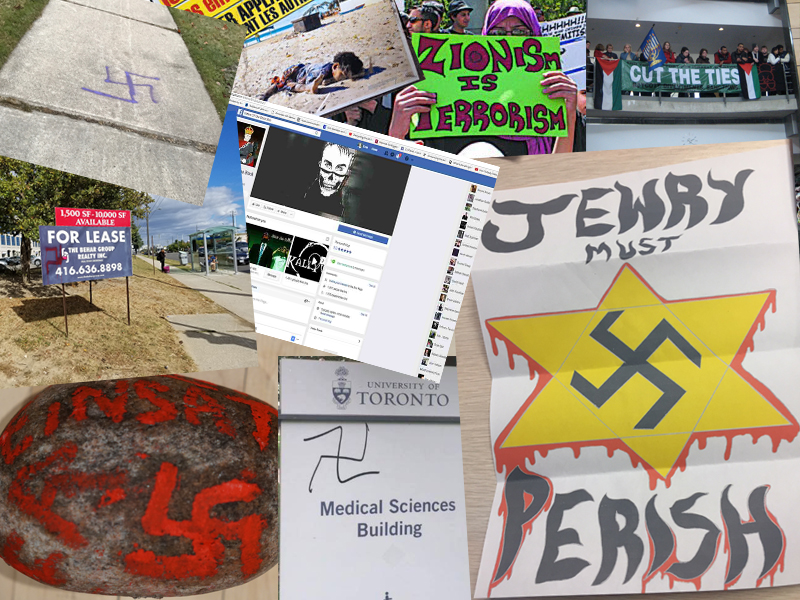On April 5, 2004, Jew-haters firebombed the United Talmud Torah’s St. Laurent campus, burning down the school’s library. These criminals admitted that they attacked this Jewish school in Montreal to lash out against Israel. After pleading guilty, Sleiman El-Merhebi was sentenced to 40 months in prison; charges were dropped against Simon Zogheib.
While most Canadians denounced this anti-Semitic and anti-Zionist hate crime the editors of La Presse felt compelled to “balance” letters to the editor condemning this modern-day book-burning with “different sentiment(s)” – as if hate crimes are up for debate. One letter dismissed the burning of “a little library.” The second sneered: “If our friends in the Jewish community were … not so almost unanimously supportive of the hateful and intransigent policies of Israel, we would obviously be more scandalized by these unfortunate acts.”
The moral confusion a few influential Montrealers displayed, and the constant blurring by haters of their Israel-hatred and Jew-hatred, is why it was particularly important for the city of Montreal to accept the International Holocaust Remembrance Alliance (IHRA) working definition of anti-Semitism.
I complained at the time in the Montreal Gazette: “When Jews note the obvious connection these days between anti-Zionism and anti-Semitism, they are accused of being thin-skinned, intolerant, even McCarthyite; yet when anti-Semites justify attacks against Jews by pointing to Israeli actions, as the United Talmud Torah vandals did, there are supposedly reputable people around who deem the connection reasonable, contextualized and thus, implicitly justified.”
The moral confusion a few influential Montrealers displayed, and the constant blurring by haters of their Israel-hatred and Jew-hatred, is why it was particularly important for the city of Montreal to accept the IHRA definition of anti-Semitism. The mayor’s recent refusal is not just a political failure by the Jewish community – it’s a moral failure by the mayor and her supporters.
This broadly-accepted definition – in Europe not just North America – defines anti-Semitism as “a certain perception of Jews, which may be expressed as hatred toward Jews. Rhetorical and physical manifestations of anti-Semitism are directed toward Jewish or non-Jewish individuals and/or their property, toward Jewish community institutions and religious facilities.”
The most controversial example says that “Manifestations might include the targeting of the state of Israel, conceived as a Jewish collectivity.” The UTT attacks – along with literally thousands of other anti-Semitic incidents since 2004 – prove why this addition is necessary. A central source of modern Jew-hatred indeed involves singling out Israel as what Prof. Irwin Cotler calls “the collective Jew.”
But critics who claim that this definition squelches debate miss the marvellous next line, specifying that “criticism of Israel similar to that levelled against any other country cannot be regarded as anti-Semitic.” That nuance – along with this unfortunate spike in Jew-hatred – explains why this definition has become so accepted. Unlike most campus speech codes and other attempts to define bigoted speech, this definition actually carves out a healthy platform that encourages criticism. The idea isn’t to squelch criticism of Israel; it’s to end the demonization of Jews.
READ: TROY: GET A SAY IN ISRAEL’S ELECTIONS WITH TARGETED DONATIONS
Within months of the bombing, generous donors, Jewish and non-Jewish, from across North America and Israel, funded a new, improved library. It was named the Azrieli Library in honour of Stephanie Azrieli, UTT’s school librarian from 1975 to 1985 (and a close friend, I’m proud to write). What better symbol of the Jewish approach, the Zionist approach to hatred. We’re tree planters not just firefighters. Yes, we will fight for passage again. Yes, Canadian Jews should take political revenge against this mayor and other officials who resist this just move. And yes, we all should remember that living well, thriving, not just surviving, is the best response.
